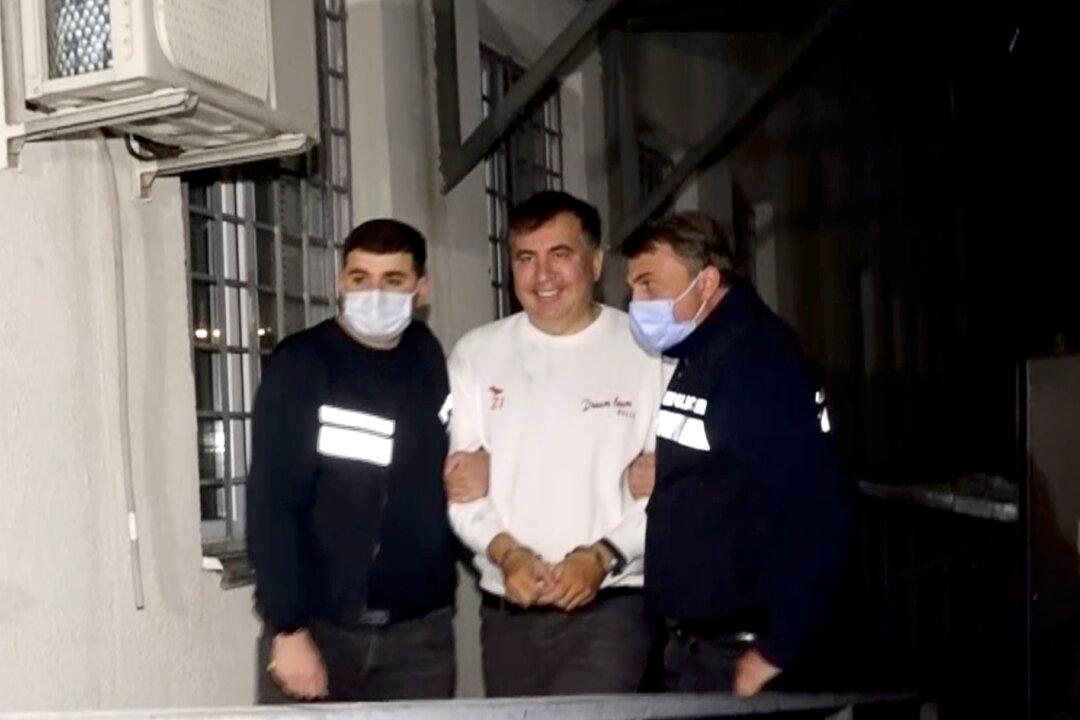MOSCOW—Georgians vote in local elections on Saturday that could escalate a political standoff between the ruling party and the opposition a day after the arrest of ex-president and opposition politician Mikheil Saakashvili.
Saakashvili, who left Georgia in 2013 and was sentenced to prison in absentia in 2018, was arrested on Friday after he returned to Georgia and called on his supporters to vote for the opposition and stage a post-election street protest.





